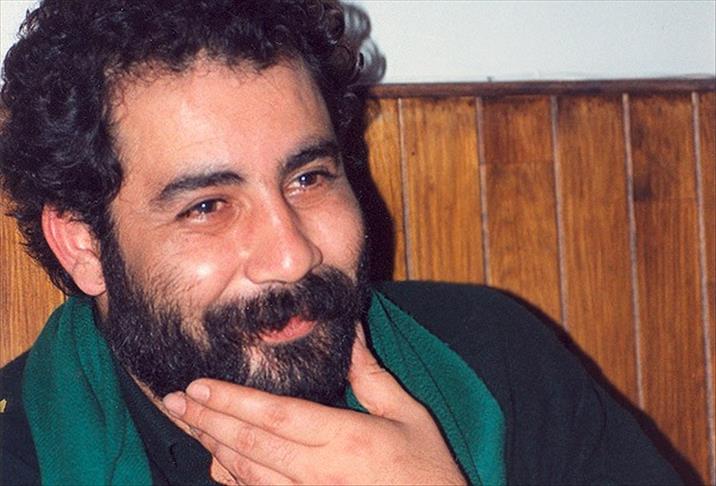
who was active during 1980s-90s, has been given a Presidential Grand Award in music.
President Abdullah Gul nominated Kaya for the Grand Award "for his ability to bring people from different backgrounds together through his music, his unique style and his discourse," a press statement issued by the Turkish Presidency said Monday.
The recipients of the prestigious awards, typically made public on the Republic Day, were announced a day earlier this year on Oct. 28, Kaya's birthday.
Kaya was immensely popular in 90s, but had to leave Turkey following a media campaign that led to charges of separatist propaganda against him.
All of Kaya's songs were in Turkish, except for one Kurdish song featured in an album - out of twenty three in total - that was released after his death.
- Kaya's career and 1999 award incident
The Presidential Award is a means of honoring Kaya's legacy, which stands in stark contrast with another award he received over a decade ago, which, ironically, wrote an unfair ending to his career and life in Turkey.
Kaya came to the music stage with his first album, Aglama Bebegim (Don't Cry My Baby), released in 1985. He experienced a tremendous surge in popularity in 1990s when all his albums topped national charts. His 1994 album, Sarkilarim Daglara (My Songs for the Mountains), sold a record 2.8 million copies.
In 1999, he was named Musician of the Year by Turkish Paparazzi Association. During his address at the award ceremony, he spoke out about his willingness to make a video clip to accompany a Kurdish song titled ‘Karwan’ that he was planning to include in his latest album.
He appealed to TV producers to broadcast the planned video clip, but his words were met with a fervent reaction from the attendees, who objected to his singing in Kurdish. They stood up to sing the Turkish national anthem in protest. Kaya was escorted by guards out of the ceremony.
Only days later, a series of photos were carried by the Turkish media that purportedly showed Kaya performing in Berlin in 1993 on a stage decorated by a so-called map of Kurdistan featuring parts of southeastern Turkey. Accompanying the photos were an account of Kaya's words during his performance, which were alleged to be in support of members of the pro-Kurdish PKK terrorist organization.
Kaya said before and after the incident that he was completely opposed to separatism, but insisted that Turkey must accept the “Kurdish reality.”
Kaya left for France in June that year. In March 2000, he was sentenced in absentia to three years and nine months in prison.
Kaya died of heart attack in Paris seven months later, on November 16, 2000. The photos and Kaya's words that became part of the evidence central to a number of allegations against him were later proven to be forged.
Anadolu Agency website contains only a portion of the news stories offered to subscribers in the AA News Broadcasting System (HAS), and in summarized form. Please contact us for subscription options.

